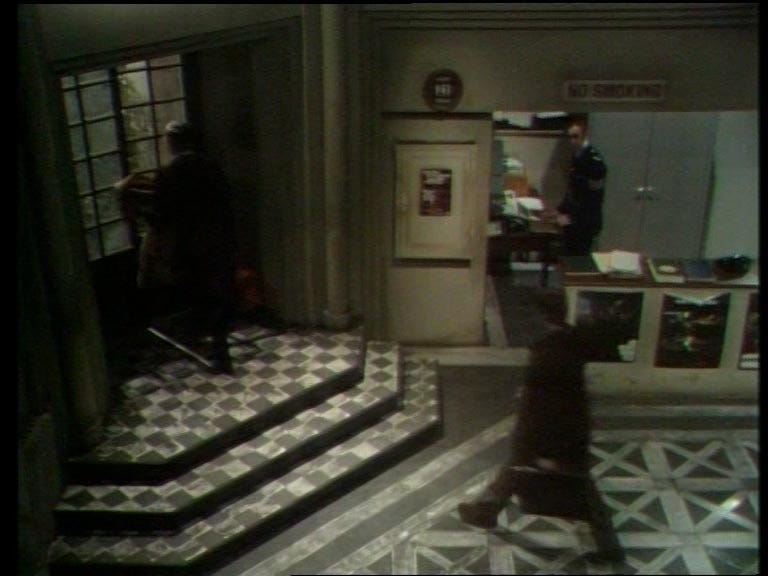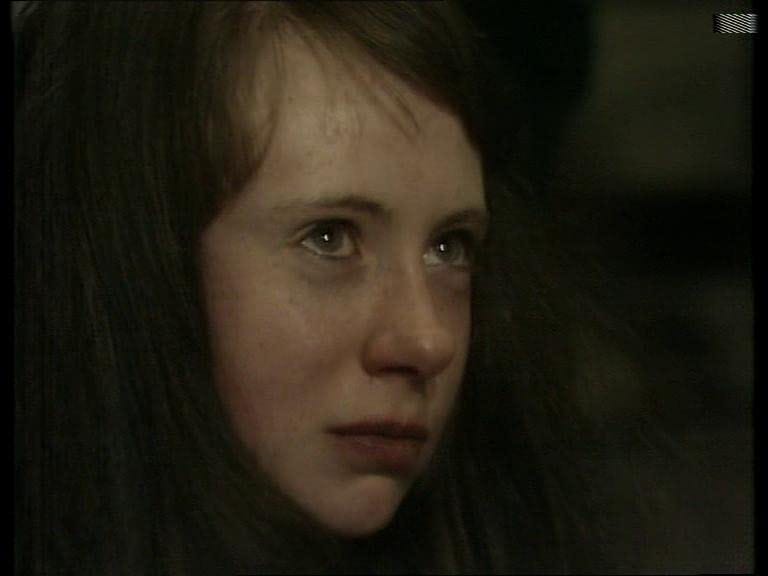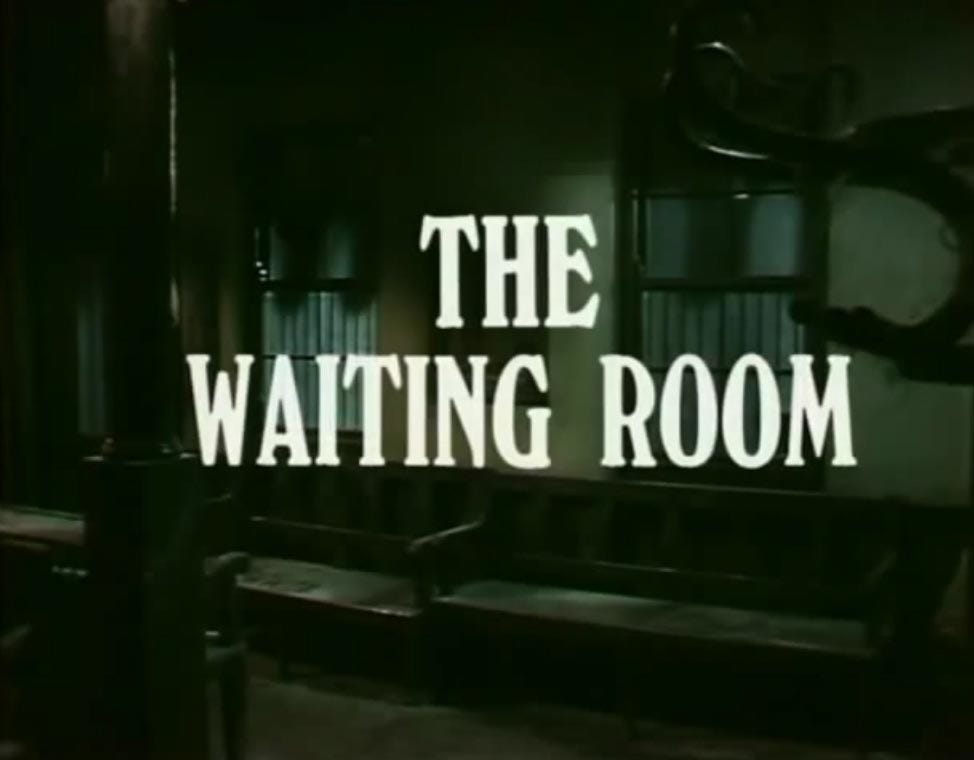In late 20th Century Britain, there were TV dramas made and broadcast by the BBC, and others made by independent companies and broadcast on ITV. These ones were often just as good as the BBC’s output, but because of brand power they are much less well-known and often unfairly maligned as inferior.
The BBC retains total ownership of every show it has made, and, being a globally recognised brand, can release these shows on DVD and they sell pretty well, and in any case profit doesn’t matter so much for the BBC. It is fairly certain that, in the fullness of time, everything notable in the BBC’s archives will be made publicly available in one form or another.
Much more precarious is the fate of those dramas broadcast on ITV and made by small independent production companies - LWT, Thames, Southern, Central, Granada, Carlton, TVS, Anglia, et al. Those companies, all of which are now defunct (thanks to Margaret Thatcher’s government), are not in a position to release or to advertise their vintage dramas, sitcoms and documentaries. Rights issues mean that few of those productions were even re-broadcast after their original showing, and most were certainly never put out on VHS, let alone DVD.
In some cases, a viewer had recorded the original broadcast onto VHS or Betamax. Some of these would be uploaded to YouTube or Bitchute. But they are very low-quality and in any case, for most productions, such recordings don’t exist at all.
But, unlike the BBC, which until 1975 saw no use for its archive of productions and therefore regularly junked the master-tapes, the independent companies knew that their archives were commercially valuable, if only a way could one day be found to feasibly release them to the public. So the master-tapes for many of the hundreds of shows that were broadcast on ITV were retained.
By the late ‘90s, these production companies had surrendered to market forces. Thatcher gave them permission to buy each other up, so that they did, until it was not possible for any to resist absorption. Eventually there was only one: Carlton. It then merged with the broadcaster ITV, and the ecosystem and variety that had enabled so much to happen had been utterly destroyed. That’s monetarism for you, I suppose.
All this time, the master-tapes of old shows lay in archive vaults, gradually decomposing, some being digitised for posterity, but very few being released to the public, since no feasible way had been found.
Then a company, Network Distributing, was created in 1997 to do just that. They rescued old shows from the vaults, sorting out the often complex legal rights to do with each one, packaging them properly, and putting them out on DVD. They rescued productions from between the 1950s and the 1990s, some of which hadn’t been seen by the public for literally half a century, and most of which would never be seen by them again - if not for Network.
I am not excited by television pre 1970s, but that decade is a cornucopia of delights for me. This is especially true of Network’s catalogue, because material from the independent production companies was often a bit more experimental and avant-garde than the BBC’s output. (It is a complete myth that the BBC, being publicly funded, was “more daring” in its output than commercial companies. Its dramas are great, of course, but often rather staid, rather “meat and potatoes”. A good comparison would be the BBC’s Colditz with LWT’s Manhunt.) These are the interesting productions that Network prevented from being forgotten.
It is because of Network, and only because of them, that I discovered many of my favourite TV dramas - Manhunt, The Guardians, Murrain, Shadows of Fear, The Boy Merlin, New Scotland Yard, to name just a few. Without Network I simply would never have encountered these wonderful productions that have enriched my life.






Network also released Upstairs Downstairs, which I love, but I dare say some other distributor would have done so, since it is so well-known. That show is truly a gem - but there are so many others.
People today busy themselves with big-budget, over-blown, shallow nonsense, while these simple but lovingly-made treasures from a bygone but still recent age await them, undiscovered. They show Britain as it was, and as it saw itself then, both in the present and in previous eras. A cultural history, of course, but also a sheer pleasure. It was a better time than today, and we made better dramas than we do today. And we made them more simply, more cheaply, and more sincerely.
Network have released only a fraction of the material that is in the vaults. That is to say, there is much more work to be done in preserving Britain’s independent televisual history…
But I have just learned that Network has gone into liquidation.
This is completely unexpected and baffling, and occurs only six months after the founder, Tim Beddows, passed away. While mourning his loss then, Network seemed optimistic, saying they would carry on his mission. It seems that this has either been scuppered or squandered.
This is a genuine cultural loss, and quite a huge one - if only modern people were aware enough to realise it.
There will be no more vintage TV shows rescued from oblivion. The vaults will continue holding their beautiful store, until it wastes away. No more magic from a better era.
But I will always be grateful for what Network gave me - some of the most special things in my life. Thank you.
RIP Network Distributing Ltd., 1997-2023.







I hope for a future where thousands of people work in a kind of European Restoration industry, searching out pre-Rainbow documents, film, photography, literature, etc. and recreating life as it was - the opposite of 1984's Records Department; going into the memory hole and undoing the censorship, the uncreation, the falsification we're living through. I can imagine Woes as the maverick genius who pioneers the whole project, raising public awareness of what was lost, going to King Morgoth for funds, and then recruiting idealistic young men and women for the great work.
A great shame, and thank you for acknowledging the loss.
You introduced me to Manhunt and The Guardians, both which I love, so in your own small way have been an archivist of these lost treasures by occasionally eulogising these forgotten shows.
Hopefully another company will come along and take up the reins, so that future generations can still witness a time when British television actually made honest, articulate and intelligent work.